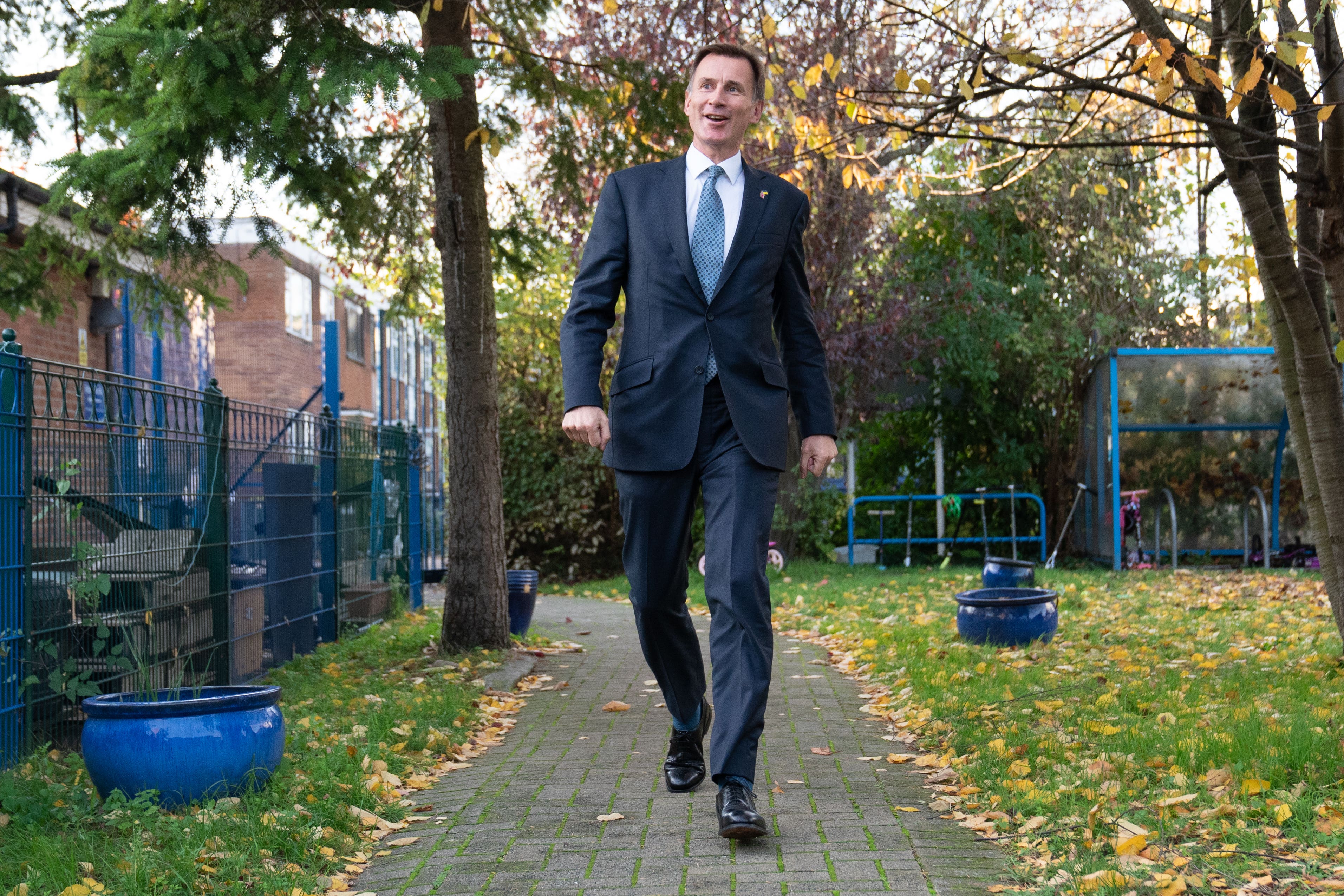Autumn statement piles pressure on ‘squeezed middle’, economists warn
The Resolution Foundation found that a typical household faces a permanent 3.7% income hit.

Your support helps us to tell the story
From reproductive rights to climate change to Big Tech, The Independent is on the ground when the story is developing. Whether it's investigating the financials of Elon Musk's pro-Trump PAC or producing our latest documentary, 'The A Word', which shines a light on the American women fighting for reproductive rights, we know how important it is to parse out the facts from the messaging.
At such a critical moment in US history, we need reporters on the ground. Your donation allows us to keep sending journalists to speak to both sides of the story.
The Independent is trusted by Americans across the entire political spectrum. And unlike many other quality news outlets, we choose not to lock Americans out of our reporting and analysis with paywalls. We believe quality journalism should be available to everyone, paid for by those who can afford it.
Your support makes all the difference.The Chancellor’s autumn statement has piled further pressure on the “squeezed middle” according to analysis from the Resolution Foundation that found tax rises would deliver a 3.7% income hit to typical households.
The think tank said the uprating of benefits in line with inflation would make a “huge difference to those on low-to-middle incomes”, but the focus on “stealthy” tax threshold freezes to raise revenue would extend far beyond high earners.
It also warned that workers are living through a two-decade wage stagnation costing £15,000 a year.
“A typical household faces a permanent 3.7% income hit from these measures – the same as the top fifth of households – and bigger than the 3% income hit that the very top twentieth of households will face,” the foundation said.
Jeremy Hunt set out his plans for £55 billion of tax hikes and spending cuts on Thursday against the backdrop of a bleak set of economic forecasts from the Office of Budget Responsibility (OBR), underlining the damage wreaked by the war in Ukraine.
It said that rampaging inflation as a result of the energy price shock meant living standards are set to fall by 7% over the next two years – taking them back to where they were in 2014.
The economy is predicted to contract by 1.4% next year, unemployment is expected to rise by more than 500,000 while taxes are set to reach their highest level as a share of national income since the end of the Second World War.
Whether or not making the choices was tough, the reality of living through the next few years will be
The Resolution Foundation also found that the budget would reverse much of the Government’s levelling up agenda.
“The £15 billion of cuts to capital investment announced yesterday will undo 80% of the remaining increases in public investment announced by previous Chancellor Rishi Sunak, which underpinned the levelling-up agenda,” it said.
Research director James Smith said Britain was getting poorer as an energy importer amid an energy price shock but “deciding how we do so was, to a significant extent, the choice facing the Chancellor”.
“He has decided that households will do so with higher energy bills, higher taxes, and worse public services than previously expected. Whether or not making the choices was tough, the reality of living through the next few years will be,” he said.
Mr Smith also said Thursday’s autumn statement saw the biggest deterioration in forecasts since the Office for Budget Responsibility (OBR) was launched in 2010.
He said: “What is doing the damage here is higher interest rates.
“Higher inflation and higher interest rate costs are both doing damage to the fiscal position.”
Earlier, Mr Hunt was warned by the think tank his planned spending cuts may prove “undeliverable” as he faced criticism from some senior Tories for raising taxes as he seeks to rebuild the UK’s battered public finances.
The Resolution Foundation think tank said such cuts were “likely to be undeliverable” as they would require “years of holding down public sector wages below those in the private sector”.
The £15 billion of cuts to capital investment announced yesterday will undo 80% of the remaining increases in public investment announced by previous Chancellor Rishi Sunak, which underpinned the levelling-up agenda
Former business secretary Jacob Rees-Mogg accused the Chancellor of taking the “easy option” in Thursday’s autumn statement rather than bearing down harder on public spending.
He said the country needed lower taxes to drive up growth after Mr Hunt acknowledged that the UK was already in recession.
At the same time, independent analysts said Mr Hunt’s promised spending cuts would mean a prolonged squeeze on public sector pay despite a growing clamour in many services for real-terms increases after the years of austerity.
The Institute for Fiscal Studies (IFS) said delaying the difficult decisions as to where the axe will fall until after the next general election would “stretch credulity” and questioned whether they would actually happen.